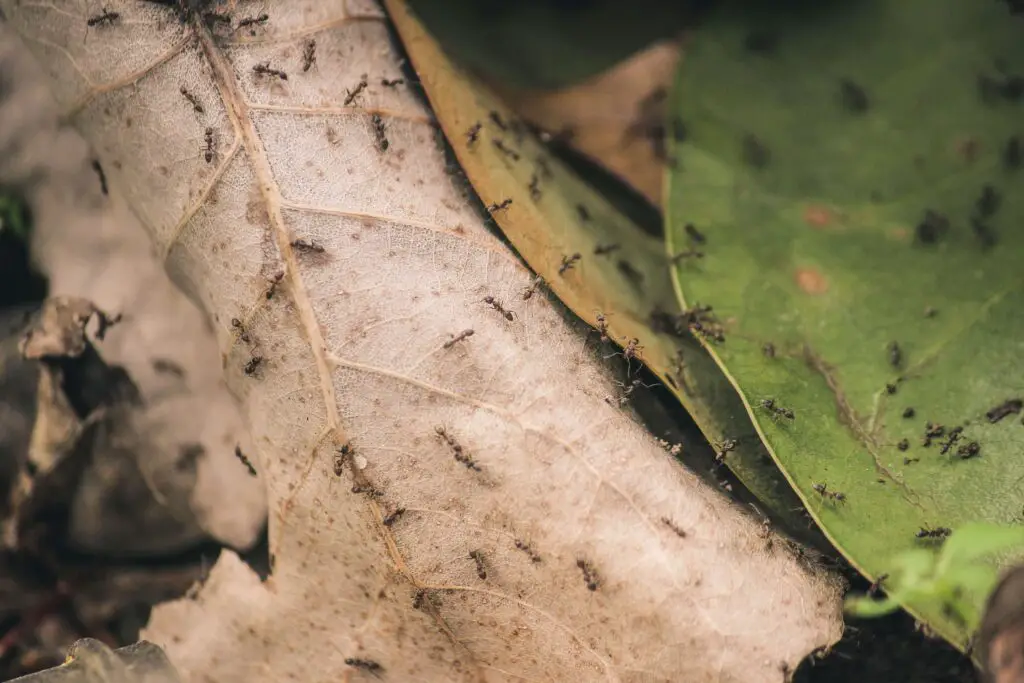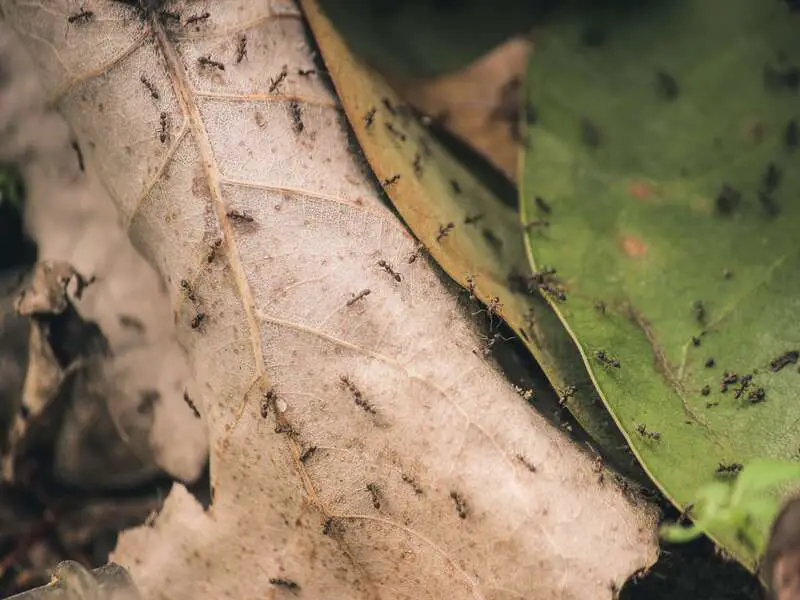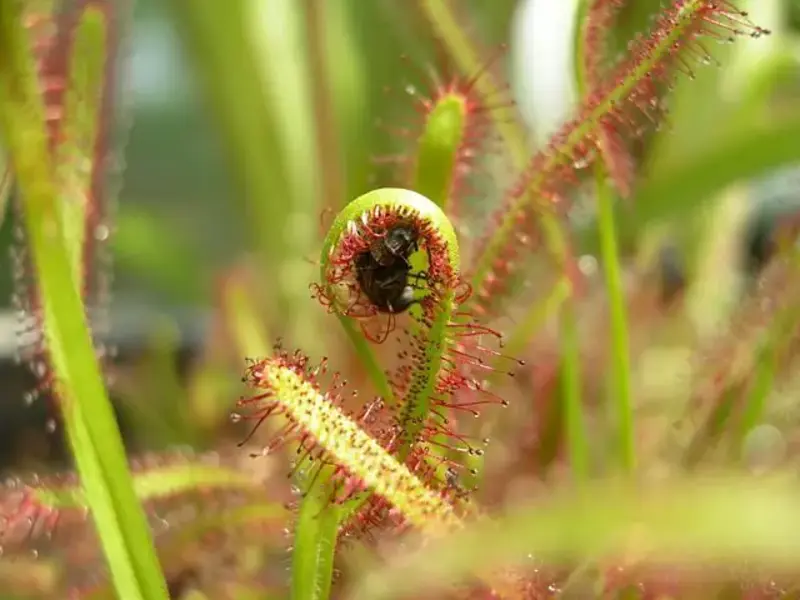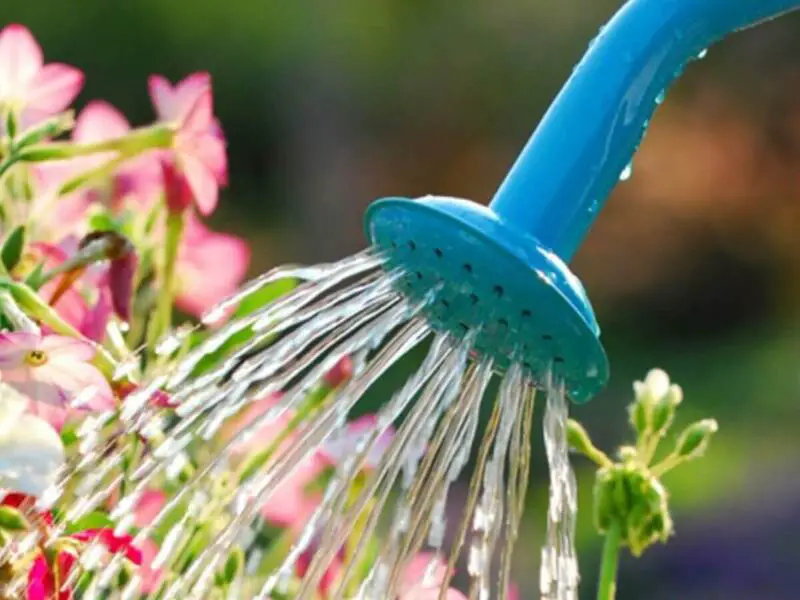Ants are essential insects in the ecosystem, but they can be harmful to plants and garden structures. Ants can cause damage to plants by chewing on leaves and stems, and they can also disrupt the soil’s ecosystem by farming aphids for their honeydew. Many gardeners struggle with ants and are unsure of how to deter them effectively.
Understand Ant Behavior
Ant behavior is complex and fascinating. Ants are social insects that live in colonies and work together to ensure the survival of the colony. They have a division of labor, where each ant has a specific role to play within the colony. Some ants are responsible for foraging for food, while others take care of the young or defend the colony.
Ants use pheromones to communicate with each other. Pheromones are chemical signals that ants use to convey information about food sources, danger, and the location of the nest. Ants can leave pheromone trails that other ants can follow to locate food sources.
Understanding ant behavior is crucial when trying to deter ants from the garden. Ants are attracted to food and water sources, so removing these sources can help deter them. It’s essential to keep the garden clean and tidy, as ants are attracted to sweet and sticky substances such as nectar, honeydew, and spilled food.
Eliminating the source of the pheromone trail is another effective way to deter ants. If you notice ants in the garden, try to follow their trail back to the nest. Once you locate the nest, you can use natural deterrents such as essential oils or diatomaceous earth to create a barrier that ants cannot cross.

Keep the Garden Clean
When it comes to deterring ants from the garden, cleanliness is key. Ants are attracted to food and water sources, and organic matter is a prime source of both. Keeping the garden clean can help deter ants by removing potential food and water sources.
One of the simplest ways to keep the garden clean is to regularly remove fallen leaves, twigs, and other debris. These items can accumulate on the ground, providing an ideal environment for ants to forage for food and build nests. By removing this debris, you can make your garden less hospitable to ants.
Another way to keep the garden clean is to clear away any leftover food or drinks. Ants are attracted to sugary substances, so be sure to clean up any spilled juice, soda, or other sweet beverages. If you have a compost bin in the garden, be sure to keep it covered and away from the garden beds.
Weeds are another source of food and shelter for ants. Weeds can produce nectar and honeydew, which are attractive to ants. By keeping your garden weed-free, you can help reduce the likelihood of ant infestations.
Finally, make sure to dispose of any pet waste properly. Ants are attracted to animal waste, and leaving it in the garden can provide an ideal breeding ground for them. Be sure to pick up after your pets and dispose of their waste in a sealed container.
Use Natural Repellents
If you prefer to avoid using chemical pesticides to deter ants in the garden, you can turn to natural repellents. There are several natural substances that have been found to be effective in deterring ants, including cinnamon, citrus peels, coffee grounds, and peppermint oil.
Cinnamon is a natural ant repellent due to its strong scent. You can sprinkle cinnamon powder around the garden or place cinnamon sticks near ant nests to keep them away. Citrus peels, such as those from oranges or lemons, contain a substance called d-limonene that repels ants. Simply scatter the peels around the garden or near ant nests to deter them.
Coffee grounds are another natural ant repellent that can be used in the garden. The caffeine in coffee is toxic to ants, and the grounds also have a strong smell that ants dislike. You can sprinkle used coffee grounds around the garden or near ant nests to deter them.
Peppermint oil is a natural ant repellent that can be effective in deterring ants. Mix a few drops of peppermint oil with water in a spray bottle and spray the mixture around the garden or near ant nests. You can also soak cotton balls in the oil and place them around the garden.
It is important to note that natural repellents may not provide immediate results and may need to be reapplied periodically. Additionally, natural repellents may not be as effective as chemical pesticides in severe infestations.
Apply Chemical Repellents
If natural repellents are not effective in deterring ants from your garden, you may need to turn to chemical repellents. However, it is important to use them with caution as they can harm beneficial insects and pollinators.
Borax and boric acid are two chemical repellents that can be effective in deterring ants. Borax is a natural mineral that can be used as a pesticide. Mix 1 teaspoon of borax with 1 cup of sugar and 1 cup of water to make a bait that will attract ants. The borax will kill the ants when they consume the bait. Boric acid is a similar substance that can be used in the same way as borax.
Diatomaceous earth is another chemical repellent that can be used to deter ants. It is a fine powder made from the fossilized remains of diatoms, a type of algae. When ants come into contact with the powder, it absorbs the moisture from their exoskeletons, causing them to die of dehydration. Sprinkle the powder around the garden or near ant nests to deter them.
When using chemical repellents, it is important to follow the instructions carefully and use them sparingly. Apply the repellent only in areas where ants are present and avoid spraying near beneficial insects and pollinators. It is also important to store chemical repellents out of reach of children and pets.
Set Up Barriers
Another way to deter ants from entering your garden is to set up physical barriers. There are various types of barriers that you can use, including sticky barriers and moats.
Sticky barriers, such as Tanglefoot, are a type of glue that can be applied around the base of plants or garden beds. When ants crawl across the sticky barrier, they get stuck and cannot proceed. This type of barrier is effective at preventing ants from crawling up into the plants and reaching the leaves or flowers.
Creating a moat around garden beds is another effective way to keep ants out. To create a moat, simply fill a shallow dish with water and place the garden bed in the middle. The water acts as a barrier that ants cannot cross, preventing them from reaching the plants.
When setting up physical barriers, it is important to make sure that they are properly installed and maintained. Check the sticky barriers regularly to make sure they are still effective and replace them if they become dirty or damaged. Make sure that the water in the moat is replaced regularly to prevent stagnation and the growth of algae.
Plant Repellent Plants
Another effective way to deter ants from your garden is to plant repellent plants. There are several plants that ants dislike, including mint, lavender, catnip, and garlic.
Mint plants emit a strong scent that can help mask the scent of food and deter ants from the area. Lavender plants also have a strong scent that can help repel ants, as well as other pests like mosquitoes and flies. Catnip plants contain a chemical called nepetalactone that is a natural insect repellent, and can help keep ants and other pests away from your garden. Garlic plants emit a strong odor that can repel ants, as well as other insects like aphids and spider mites.
When planting these repellent plants, it is important to place them strategically around your garden. Plant them near the areas where ants are likely to enter, such as near the borders or around the edges of garden beds. You can also plant them near plants that are particularly susceptible to ant infestations.
It’s important to keep in mind that while these plants are effective at repelling ants, they may not completely eliminate them from your garden. You may need to use other methods in combination with planting repellent plants to effectively deter ants from your garden.
Employ Beneficial Insects
Employing beneficial insects is an effective and natural way to control ants in the garden. Ladybugs and lacewings are examples of beneficial insects that can help deter ants. These insects prey on aphids, which are a food source for ants. Ants “farm” aphids, meaning they tend them for their honeydew excretions. By controlling the aphid population, you can deter ants from the garden.
To attract beneficial insects to your garden, you can plant a variety of flowers and plants. Many beneficial insects are attracted to flowering plants, which provide them with nectar and pollen. You can also purchase beneficial insects from a reputable supplier and release them into your garden.
Another way to encourage beneficial insects is to avoid using harmful chemicals in the garden. Pesticides and insecticides can harm beneficial insects as well as pests. Instead, use natural methods to control pests, such as neem oil or insecticidal soap.
By employing beneficial insects in your garden, you can help control ants and maintain a healthy ecosystem.
Keep Ants Away from Garden Structures
Keeping ants away from garden structures is important to prevent damage to these structures. Ants can build their nests inside or near garden structures, such as sheds, fences, and trellises, and can cause damage by tunneling through the wood.
To deter ants from these structures, you can apply a barrier of petroleum jelly around the base. The petroleum jelly will prevent the ants from climbing up the structure and entering. You can also use ant baits that contain borax or boric acid to kill ants that are already present. These baits work by attracting the ants to the bait, which they will carry back to the nest, ultimately killing the colony.
It’s important to note that when using ant baits, you should place them in areas where pets and children cannot access them. Borax and boric acid can be harmful if ingested, so keep them out of reach. You should also use these baits sparingly, as they can harm beneficial insects and pollinators.
By keeping ants away from garden structures, you can help prevent damage and maintain the structural integrity of your garden.
Call a Professional
If you have a severe ant infestation in your garden, it may be necessary to call a professional pest control company. They can assess the situation and use effective methods to eliminate the ant infestation.
In conclusion, ants can be a common problem in gardens, but there are several effective ways to deter them. Understanding ant behavior, keeping the garden clean, using natural and chemical repellents, setting up barriers, planting repellent plants, mulching properly, using sticky traps, employing beneficial insects, keeping ants away from garden structures, using diatomaceous earth, creating a borax solution, using vinegar, and calling a professional are all effective ways to deter ants from the garden.
Conclusion
In conclusion, deterring ants from the garden can be challenging, but it is possible with a combination of methods. Understanding ant behavior and keeping the garden clean are essential steps to take. Additionally, using natural and chemical repellents, setting up barriers, planting repellent plants, and employing beneficial insects can all help keep ants away from the garden. It’s important to be mindful of the potential harm that chemical repellents can cause to beneficial insects and to use them sparingly. By implementing these methods, gardeners can enjoy a thriving and ant-free garden.




